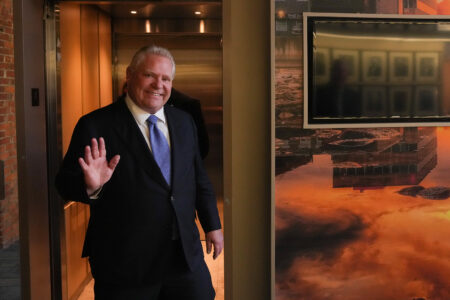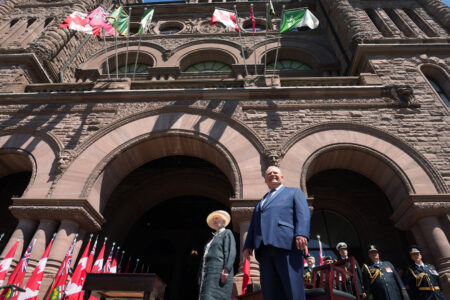
Research shows Canadians have a very high level of respect and regard for the men and women who keep our streets safe. The police work hard, put their lives at risk every day, and are a bedrock of our justice system. It shouldn’t be a big surprise that they are a much sought-after group. The photo-op with Canada’s cops is a prize for any politician.
When the police speak, people listen.
Because of the state of ethical political play (or, that is, the lack of political ethics), investigations into politicians and political parties become part of the daily news narrative. This is rightfully part of the checks and balances in our democracy.
But because Canadians tune in to what the police say, a case can be made that police announcements during elections can have a material impact on democratic outcomes. At least one situation where that appears to have been the case was the RCMP’s announcement of a criminal investigation into then-Liberal minister Ralph Goodale just ahead of the January 2006 election. Heaps of negative ads by the Harper Conservatives in December had not moved polling numbers. The RCMP announcement did, leading to a seismic shift in opinion. Within days of the announcement, the Martin Liberals’ advantage dissipated and Harper built enough momentum to win a minority.
There are many reasons why Harper won the election but, from a research perspective, the victory spark was ignited by the RCMP announcement.
Let’s fast forward to the Ontario 2014 provincial election. One week from election day, the OPP anti-rackets squad publicly announces that it is seeking more details in its probe into the deleted emails related to the gas plant scandal. Coming a day or two after the leaders’ debate where Liberal leader Kathleen Wynne was on the defensive over the same issue, this can’t be welcome news for the Ontario Liberals.
In fairness, police “intervention” in this election could be a mixed bag. The Ontario Provincial Police Association union is running ads against Tim Hudak’s PCs.
Regardless of your view, in one instance the police are shaping opinion through advertisements and in the other, they may be inadvertently influencing voters with open discussion of a criminal investigation. Let’s assume these developments affect one in 20 Ontario voters. Not a problem, you might say. But mathematically, a five point swing in one direction or another makes or breaks a political party.
No one is telling the police how to do their job. But they do need to take their well-earned high regard into account when it comes to talking at election time.
Follow @niknanos







